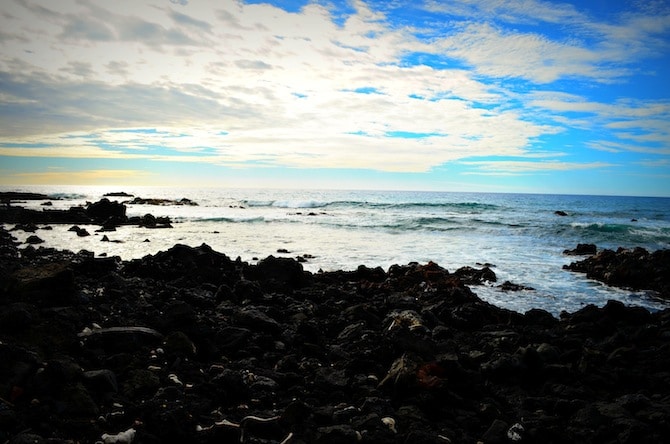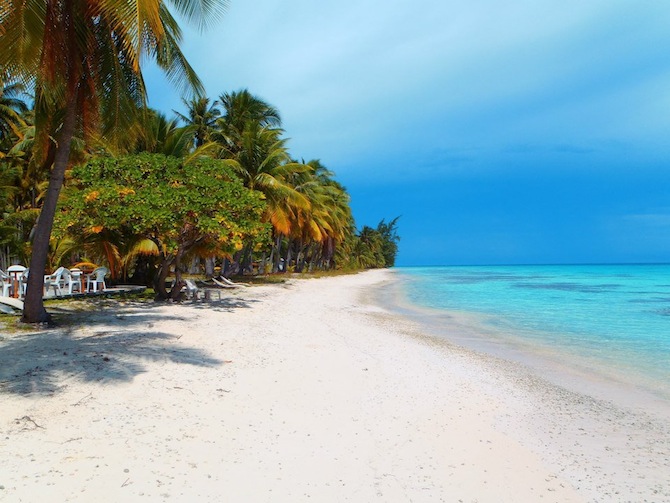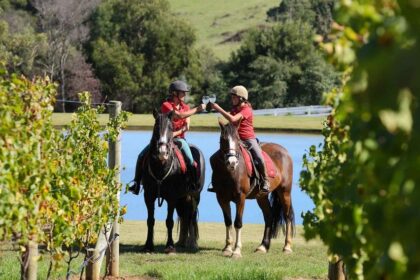
This is a guest post by Sarah Martin and Mark J. Spaulding of The Ocean Foundation
Sustainable tourism goes beyond reusing towels and sheets, hotels with LED lighting and some locally sourced food. In our work looking at coastal sustainable development issues, we cannot reach agreement – tourism is a powerful force for bad, and sometimes for good. Nearly everyone has experienced a life changing moment due to a travel experience. Many have learned cultural tolerance by replacing their myths with knowledge due to travel. And, sometimes tourism can help protect cultural heritage, social balance and ecological balance.
Tourism, fast becoming the largest global business, employs one out of twelve persons and produces $6.5 trillion of the world’s economy. Residents, combined with the more than 180 million tourists that flock to the coasts each year, place heavy demands on the unique natural systems and resources that make coastal areas so attractive and productive. Tourism also affects the food chain, according to the National Climate Assessment 2014 Global Change Report. The United Nations Environment Programme (UNEP) believes about one-third of food produced for human consumption in the world each year is lost or wasted, and that the tourism industry has a role in this.
Protecting local marine resources is one of the most urgent needs in promoting sustainable tourism. Sustainable coastal tourism can help preserve artisanal fishing communities, allow for subsistence fishing, protect the environment and make positive contributions to sustainable economic development. To that end we should look to create more and increase the size of marine protected areas (MPAs). This will improve the ability of local people to supply fish, and for managing supply with safer local systems for aquaculture.

How To Help Protect Marine Resources
When it comes to marine protected areas and tourism, that means good management of no-take areas and fishing areas to ensure high quality, low impact fisheries to deliver to restaurants, resorts and residents. It means ensuring that everyone abides by the same set of rules in protecting resources—from reefs to seagrass meadows to the creatures themselves. It means making sure hotels, businesses and residences do not contribute sewage and other pollution into the marine protected areas—or the waterways that feed into them. It means engaging everyone in preventing litter, reducing use of single-use plastics, and finding ways to address waste management at every level. MPAs can be major tourist attractions, which broaden coastal communities economic options. In well-managed MPAs tourists can see endangered species, coral reefs and beautiful beaches. The fee tourists would pay would support conservation and livelihood of the local communities.
One way to look at this is “community self-governance,” which takes on a community-based approach and encourages local people to take ownership and become environmental custodians. With help they can develop policies and programs to protect fisheries, locally owned small businesses and ocean resources.

The Resort Partnership Strategy
The Ocean Foundation’s President, Mark J. Spalding, has worked in the field of responsible coastal tourism for over 25 years. He has focused on developing strategies for human activities in which healthy natural resources support healthy human communities that thrive economically, socially, aesthetically and environmentally. His diverse professional and personal experience is brought to bear on each new project. As such, he established a unique model of “resort partnerships” to assure that tourism development benefits the communities in which they are located, under the rubric of “Love this Place and its People.”™ As part of this work, our team developed an award-winning set of Coastal Sustainable Development Standards.
Our resort partnership strategy is designed to provide funding over time — not just up front — to meet the needs of the community as well as to address the maintenance and enforcement elements of conservation areas that may have been established as part of the resort’s initial design. The focus is both on land and in the water, with 1% of the gross revenue from coastal and island tourism developments. We only work with developers who incorporate best practices into their developments for the highest levels of social, economic, aesthetic, and ecological sustainability during planning, construction, and operation. Public-private partnerships like these to promote sustainability and conservation are more than just a market trend and a PR strategy—this model helps to ensure the long-term success of the project by proactively addressing the social, ecological, economic and aesthetic impacts of the development. Otherwise, the tourism project risks undermining the natural beauty of the place, and the unique cultural aspects that attract travelers in the first place.

Give Back Through Travel
Many of us have had the luxury of traveling at some point in our lives, but how often do we give back to the communities we are visiting or how effective is our philanthropy in those communities? The impact of tourism and travel on the community or environment that is being visited isn’t always at the forefront of travelers’ minds, which is why organizations such as The Ocean Foundation and our programs such as our resort partnership model are so important.
It can be hard for tourists to discern which practices are sustainable and beneficial to the community and which aren’t so great. As one may do before any trip, we suggest doing a little research into the resort, hotel, area you are staying and see what kind of practices they have in place. Two great websites we recommend are The Center for Responsible Travel and Travelers’ Philanthropy. There you will find information on tourism companies that are dedicated to the community and environment as well as easy tips for making your trip as sustainable as possible.
Almost all of us have deep emotional connection to the coasts and ocean. Whether it is for stress relief, health and wellness, inspiration and recreation, when we journey to the sea, we want it to live up to our fond memories or the beautiful photographs that inspired our choice. And we are disappointed when it does not. The coasts and ocean require our attention and care to be healthy. And, if the ocean is not healthy, neither are we. Learn more about our Traveler’s Philanthropy here.
How do you participate in conscious marine tourism? Please share in the comments below.
Also Check Out:
How Solar-Powered Computers Are Empowering Underprivileged Children
Wanderlust-Inducing Signs On A Beach In The Exumas, Bahamas [Photo]
Jessica Festa
Latest posts by Jessica Festa (see all)
- A Culturally-Immersive Adventure In Mongolia’s Altai Mountains - Jul 8, 2023
- This Recipe Sharing Platform Supports Women In The Culinary Industry (Labneh Recipe Included!) - Nov 5, 2020
- Hiking The Mohare Danda Community Eco-Trek In Nepal - Jun 3, 2020
- 6 Important Questions For Choosing A Responsible Yoga Retreat - May 18, 2020
- How To Create & Grow A Profitable Blogging Business (Ethically) - Jan 18, 2020




It’s always amazing to see marine life. My first Marini tourism was in Kazakhstan by https://samarkandtours.com/kazakhstan/kazakhstan-tours-packages/ company. It was really unforgettable.